Discover the 19 best vegan substitutes for coconut milk for adding a creamy, thick texture to your favorite recipes without compromising flavor.
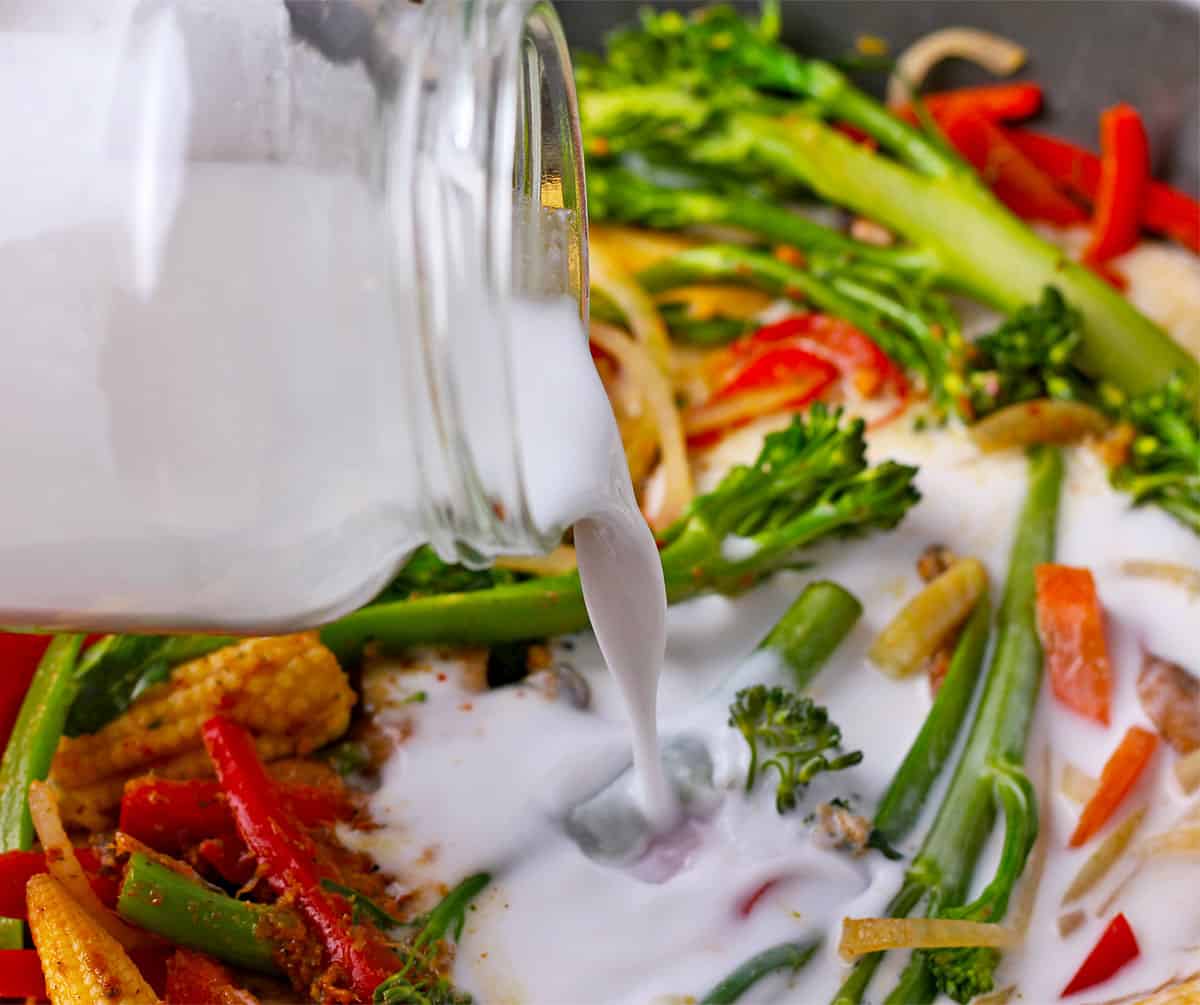
Table of Contents
🥥 What is Coconut Milk?
Even if you have a coconut tree outside your house and the fortitude to break open a coconut, you won't find coconut milk inside.
What?
Yep. Inside its seemingly impenetrable exterior is coconut water, white flesh (coconut meat), and naturally occurring oil and sugar.
Coconut milk, my friend, is processed using coconut water and flesh. The amount of processed coconut meat, also known as coconut cream, impacts coconut milk's creaminess (and fat).
And to make it more confusing, there are different ways of processing and other ingredients added. You can find coconut beverages, sweetened and unsweetened coconut milk, and lite coconut milk. Some coconut milk will also have added coconut oil that is separate from the natural oil of the flesh.
That's why some coconut milk has the consistency of heavy cream with a layer of hard coconut cream on the top, and others are thinner, like regular milk.
My point?
We can bucket coconut milk as healthy food, and sure it's low in carbs, but it has a higher fat content than most of our substitutes. The only way to be sure you know what your getting is to turn the can around and look at what's in it. For goodness' sake, read labels and get to know your brands.
💭 Why Substitute Coconut Milk?
We all know the feeling. You've got everything in the pot for that delicious Indian or Thai curry. At the last moment, you realize that can isn't coconut milk.
You aren't about to toss out all that delightful effort. That's where this list comes in.
Perhaps you want the creamy texture of coconut milk without the added calories and fat. And you want it plant-based. Not to worry, this list is composed only of mindfully healthy and vegan foods. Purposefully left off the list are dairy products and added processed oil.
💬 What to Consider when Substituting
When making any substitution, consider the flavor profile and desired texture of the recipe you are making and the part that coconut milk fulfills. For example, you might use coconut milk to add a volume of liquid, thickening, sweet coconut flavor, or a combination of characteristics.
And just like any ingredient, ‘required’ or substituted, convenience, cost, and what you have available will influence your final decision. The best coconut milk substitutes should enhance the integrity of your recipe without compromising flavor and texture.
📖 The Substitutes
This list is broken down into liquid substitutes, flavor enhancers, thickeners, and cooking methods. And here’s the fun of it, you can use just one or several options. Think creative cooking with gusto.
🥛 Liquid Substitutes
1. Lite Coconut milk – The best substitute for regular coconut milk is the lite version which has about half the fat and calories of the standard stuff. Many of us, including me, use regular and light coconut milk interchangeably, although lite is thinner.
2. Oat milk – Oat milk is widely available and comes in several varieties. The original type is thinner than coconut milk; however, some thicker kinds, such as barista, have a consistency of heavy cream. Unfortunately, it also contains a lot of oil.
3. Almond milk – Almond milk has a delicately sweet, nutty flavor. Like all milk (plant and cow's), it is thin. Almond milk is widely available at grocery stores and can be found in sweetened, unsweetened, and other flavor varieties.
4. Cashew milk – Thick and creamy cashew milk adds a rich flavor to curry and soups. You’ll want to check the labels of available brands to determine if they have added oil or other ingredients.
5. Rice milk – Another plant-based milk with a creamy but thin texture. You'll want to add a thickener to mimic coconut milk.
6. Coconut water – Coconut water is an excellent option for the flavor of coconut. Lucky for you, thickening agents are next on the list.
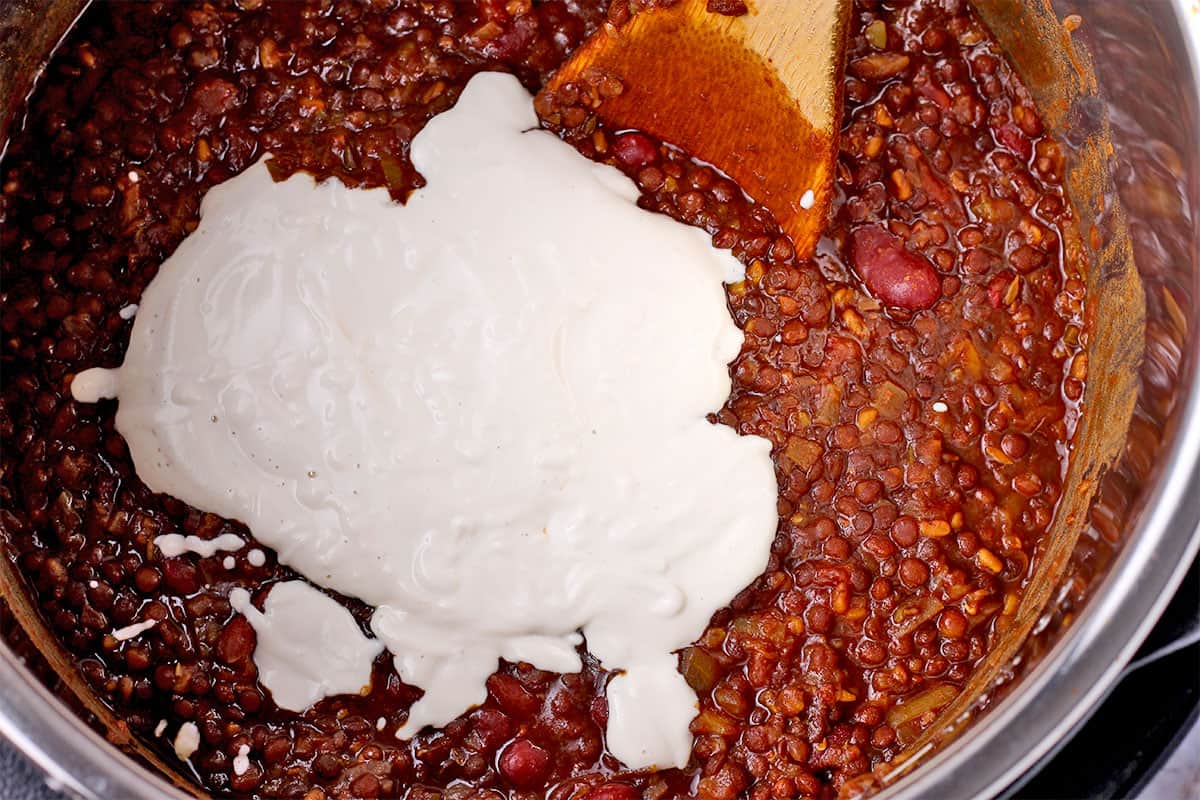
🥣 Creamy Thickeners
7. Cashew cream – It can be made as thick or thin as you desire. The simplest form is soaked cashews blended with water. Cashews have a lot of fat, but you can control this by only adding a few, say ¼ a cup to 1 cup of water. Use less water, and it's a good substitute for coconut cream.
8. Sunflower seed cream – I had to add this because we love sunflower seed sour cream. Sunflower seeds can serve the same purpose as cashews for a fraction of the cost. Use a spice grinder or food processor to pulverize the seeds for the creamiest results. They don't break down as smoothly when soaked.
9. Blanched almonds – Almonds have a nutty flavor compared to cashews, but they can be used similarly. Soak them first. The quickest method is to cover them with boiling water and soak them for at least 15 minutes. Use a high-speed blender to mix them with any liquid substitutes mentioned above.
10. Vegan Sour cream – For a zestier flavor, vegan sour cream is a quick way to add creamy flavor. You can make or buy vegan sour cream.
11. Aquafaba – The liquid from cooked chickpeas is a superb, plant-based thickener that adds more creaminess than plain vegetable broth or water. When you make a chickpea curry, add 1 of the cans undrained. Then, when you add more liquid, it will naturally thicken it up.
12. White beans – Blend a few white beans with water. Choose a neutral-tasting bean such as cannelloni. Don't believe me? Check out this mushroom gravy recipe – with white beans.
13. Vegan yogurt – What's nice about vegan yogurt is that there is such a thing now as vegan coconut-flavored yogurt. Like any processed food, you'll want to consult the labels. Greek yogurt isn't vegan, which is why it isn't included here.
14. Silken tofu – What added protein and a creamier texture? Silken tofu could be the answer. It has a thicker consistency than regular coconut milk, so use a little to start. Blend it with another liquid before adding it to your recipe.
15. Cornstarch or arrowroot – If you want to thicken plant-based milk or coconut water quickly, mix a teaspoon of cornstarch for every cup to match the consistency of coconut milk. For best results, mix cornstarch with a bit of water (or other liquid) before adding it. Preferable, the liquid should be a room temperature or below. Adding cornstarch straight into a simmering pot at high temperatures can cause lumps. It's always too early for lump chasing.
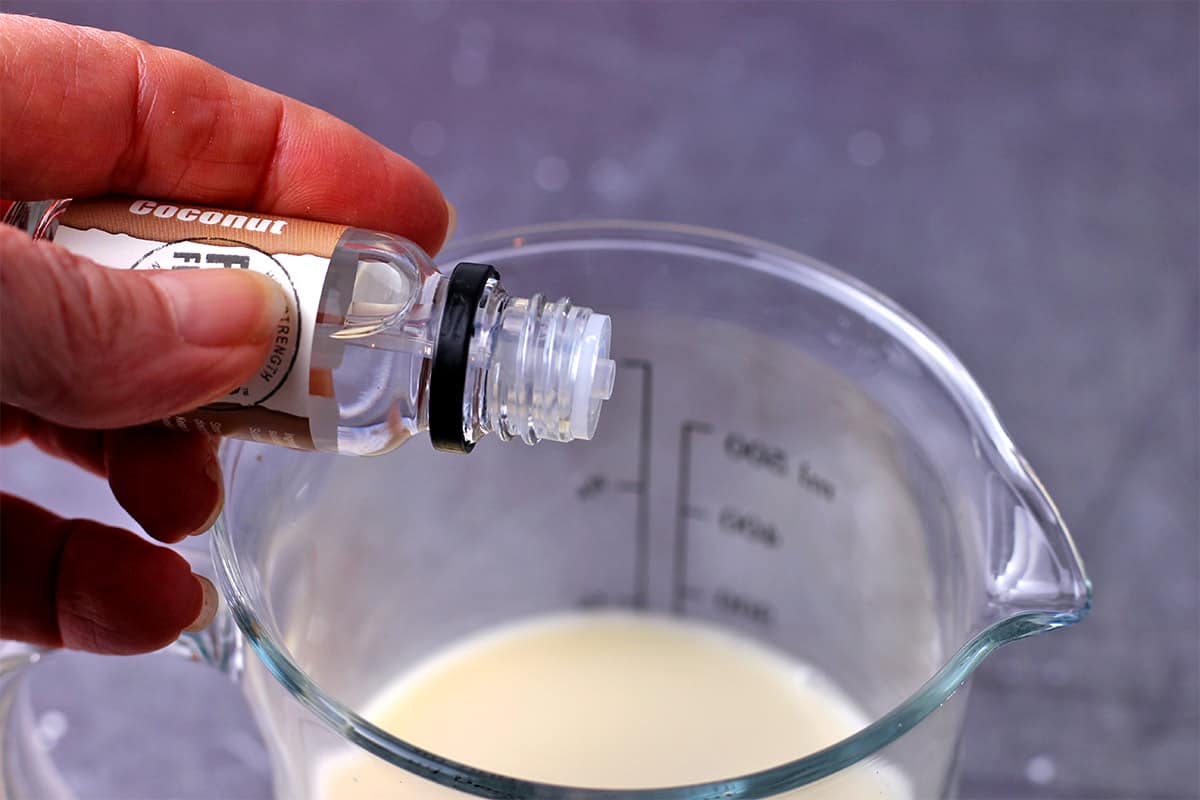
🧂 Flavor Enhancers
16. Coconut extract – Grab all the coconut flavor you want with just a few drops. Coconut extract and plant milk is my favorite mango curry trick. This is ideal for making sauces or smoothies. Heck, I've used it with coconut milk when I want more flavor.
17. Coconut flakes – A great substitute for a burst of coconut flavor with a chewy texture. Toast them and use them as a garnish or mix them in, so they rehydrate and soften as they cook.
🥄 Techniques
18. Blending ingredients – There are two ways your blender can help you make an excellent substitute for coconut milk (who knew?).
First, if you are making a dish with beans, add half a cup of cooked beans to vegetable broth or whatever liquid you use. I use this technique for red beans and rice – works every time! Use a food processor or blender to make a smooth, thick liquid. Then add it to the cooking pot.
Second, use this method if you don't have the advantage of pre-cooked beans or cooking everything in the Instant Pot or slow cooker. Remove a cup or more of the cooked ingredients and blend them separately. Or use your immersion blender right in the pot and make it as smooth or textured as you like.
19. Simmer and mash – Yep, it's my own culinary term, but here's what happens. You have a nice sweet potato curry simmering along, and add a cup or two of plant- milk with a few drops of coconut extract. Use the back of a spoon or fork to mash the cooked potatoes against the side of the cooking pot. Thickening magic!
⭐Mix and Match
Use parts or several of these hacks to come up with a great alternative to coconut milk or cream of coconut, depending on your preferences. Once you start experimenting, you'll intuitively know how to adjust for a thick consistency. And if you overshoot? Add more liquid for a thinner consistency. And some of these ideas, such as blending, can be used when you just want your curry sauce thicker, all nuts aside.
Finally, you can always use just a cup of coconut milk and another substitute to make a smooth dish. Remember, coconut isn't the main ingredient, you've got yummy veggies, pulses, and spices to carry the day.


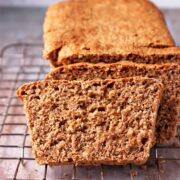

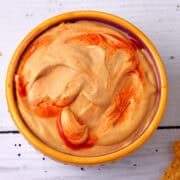
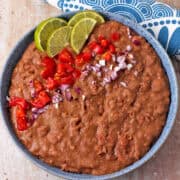
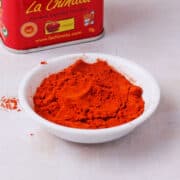

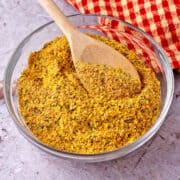
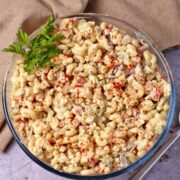
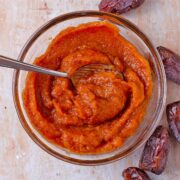
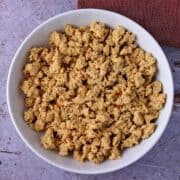
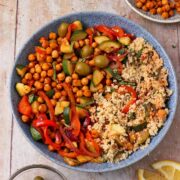

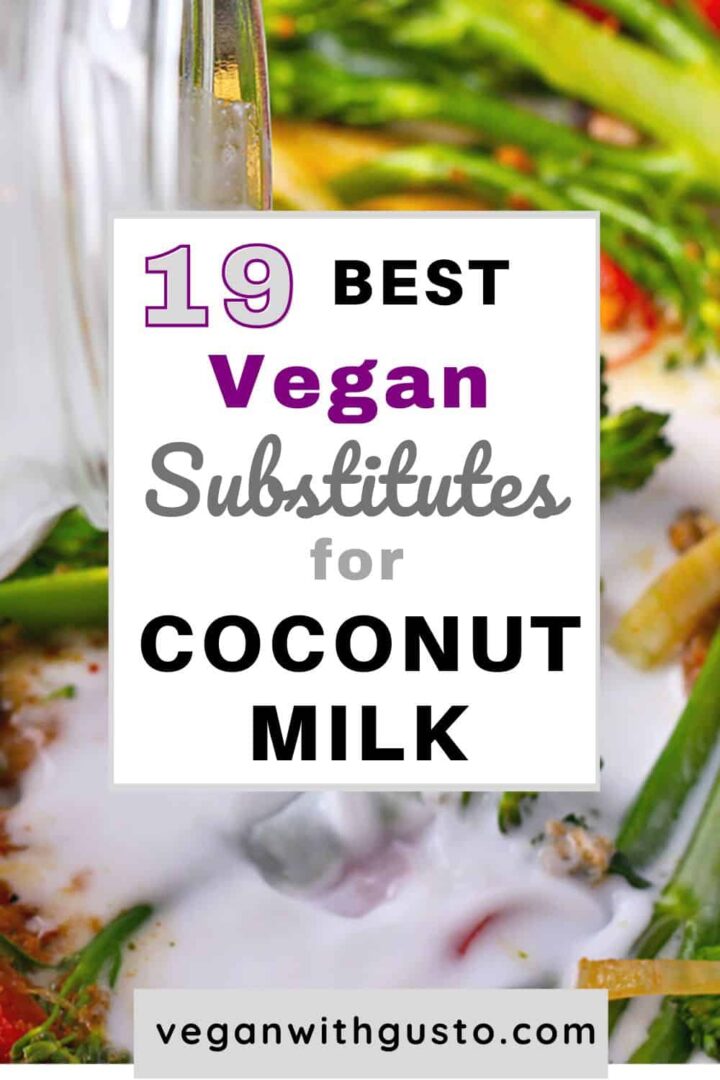

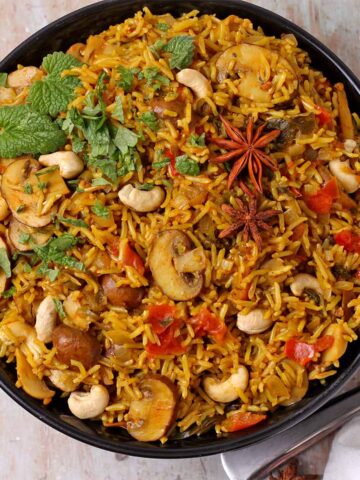
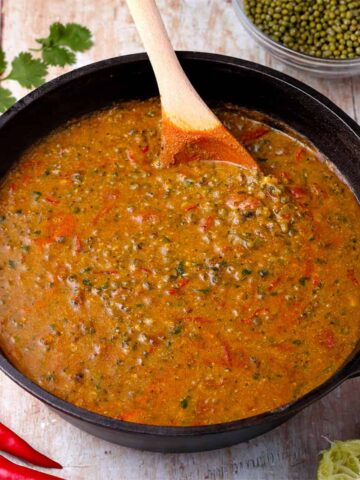
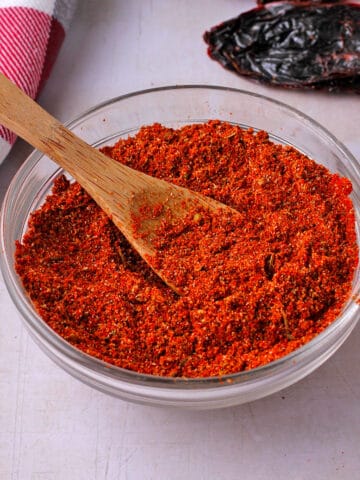

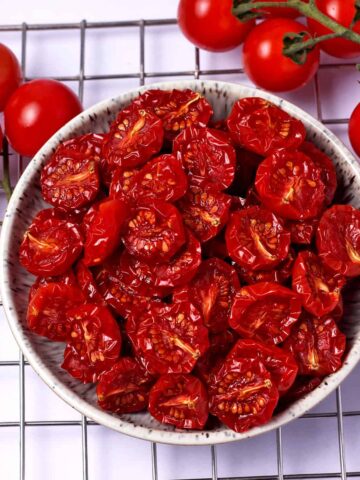
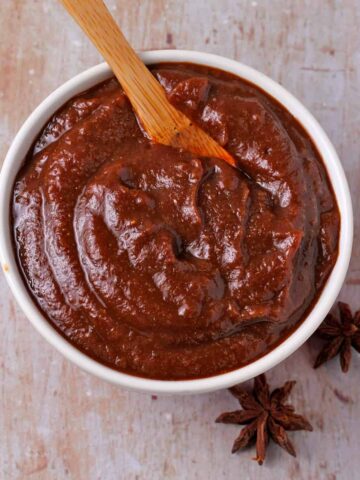

Alexandra
Very useful and creative ideas for subbing coconut milk. I have avoided many many recipes that featured coconut milk, but now I won't have to. Yes, coconut milk does wonderful things in recipes, but I don't eat it for health reasons. There are many recipes using coconut milk which I avoided, including one of my favorite recipes, Your ideas are very welcome.
Denise
I am SO happy to hear this was useful. We shouldn't have to avoid recipes with coconut milk when there are great substitutes available.:)